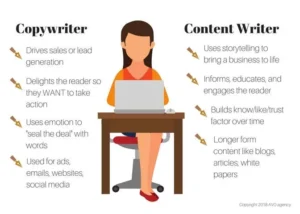Ever caught yourself thinking, “Could I really write for a living?” Maybe you’ve asked, how to become a content writer or how to be a writer who works from home. Good news: yes, you can. You don’t need a fancy degree. You need persistence, the right habits, and some smart moves. Let’s walk you through how to become a writer (content, freelance, or even technical) from square one.
What Being a Content Writer Looks Like
A content writer writes articles, blogs, web pages, emails—anything that uses words to connect, persuade, teach, or entertain. It’s not poetry or fiction (unless you want it to be), but it could be your path to making real income.
- Thinking of how to become a writer in general? Content writing is one of the most accessible roads.
- If you lean toward detail and clarity, you might love technical writing. That’s writing product manuals, help docs, process guides.
- And if you like flexibility, how to become a freelance writer is all about writing for many clients—choosing your hours, your niche, your rates.

Why This Path Fits Beginners
Let’s get real: starting something new can feel scary. But content writing has perks for beginners:
- Low setup cost: Pen, PC, internet are enough to start.
- Work-from-anywhere: Cafés, home offices, travel—wherever inspiration strikes.
- Growing demand: Every brand, blog, and business wants content.
- Room to grow: Begin with smaller gigs, then scale up as you get better and build reputation.
Key Skills to Build First
To move from hobby writing to paid writing, these are essentials:
- Clear writing—no fluff, no big fancy words just for show.
- Good grammar & editing—your writing doesn’t have to be perfect, but people notice mistakes.
- Research & curiosity—you don’t need to know everything, just how to find what you need.
- SEO basics—understanding keywords, how people search, and making your writing easy to find.
- Adaptability—writing blog posts one day, email newsletters the next.
- Consistency & discipline—deadlines, revisions, showing up even when inspiration is low.
Step-by-Step: How to Start Becoming a Writer
Here’s a roadmap many writers follow. You can adapt it to your pace.
| Step | What You Do | Why It Matters |
| 1. Write something daily | It could be a short blog, journal, micro-blog post | Builds your “writing muscle” |
| 2. Choose a niche | Pick topics you like—tech, lifestyle, travel, health, games | You’ll write better and find clients faster |
| 3. Build samples/portfolio | Post on your own blog or write guest posts; collect work even if unpaid initially | To show people how to become a freelance writer you’ve done real work |
| 4. Learn SEO & content strategy | Basic keyword research, meta titles, headings | Makes your work more visible to clients |
| 5. Pitch or apply for jobs | Use freelance platforms, cold-email businesses, reach out to blogs | This is how “beginner writer” becomes “paid writer” |
| 6. Accept feedback, revise, improve | Get critique, do edits, learn from mistakes | Improves your writing and builds your brand |
| 7. Scale / specialize | Pick a niche, raise your rates, try technical writing if it suits you | Wisdom in specialization = more pay + recognition |
Real tip from writing community: Beginner writers often cast a wide net—pitch lots of ideas, try different topics. It’s how you figure out what works.
Moving Toward Freelancing & Technical Writing
Freelance Writer Things
Working for clients means negotiation, reliability, and delivering value.
- Set up a profile on Upwork, Fiverr, LinkedIn.
- Choose your rates carefully—not too low, but reasonable for your level.
- Write strong pitches: show what you know, show how you solve clients’ problems.
- Use testimonials or reviews once you do work. They build trust.
Technical Writer Angle
If you enjoy clarity & process, this is a strong option.
- Understand a domain (software, hardware, medicine, etc.).
- Create sample technical docs—even if they’re mock pieces—to show skill.
- Learn to explain complex concepts simply.
Common Missteps Beginners Make (So You Can Skip Them)
- Trying to do everything at once. Better to be good in one area than mediocre in many.
- Ignoring feedback. Rewriting & improving matter more than output volume.
- Undervaluing your work. Sometimes accepting low pay sells your value short.
- Waiting for things to be perfect. Just start—with rough edges.
Real Stories to Encourage You
- Many new writers share that revenue comes slowly. One person said they earned nothing for many months, but kept submitting pitches. Eventually, small jobs stacked up and income became consistent.
- Another writer started with small guest posts, posting content on Medium. It helped build credibility and led to paid gigs.
These are proof: success doesn’t always come fast, but persistence works.
Your First Action Plan
Here’s what you can do today:
- Write one short sample piece in a niche you enjoy.
- Post it somewhere—your blog or Medium or anywhere public.
- Reach out to 3 clients or websites with pitches.
- Ask one person to review your writing & give feedback.
- Read something—blog posts, books—to pick up new styles & ideas.
Final Thoughts
So, can you become a content writer? Absolutely. It starts with small steps, honest effort, and steady improvement. Becoming a content writer doesn’t need fancy credentials—it needs heart, practice, and a willingness to learn.
If you do the work, build your samples, and treat this like a journey rather than a sprint—you’ll look back and see how far you’ve come. And soon, writing might not just be a goal—it could be your job.